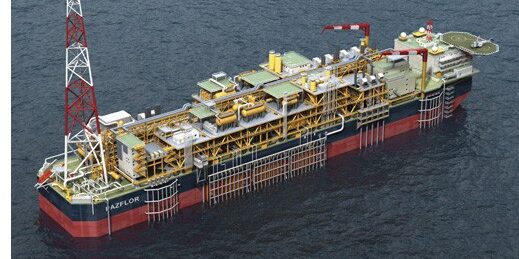The National Agency for Oil, Gas and Biofuels (ANPG) has approved the work plan and budget for oil concessions, which includes several campaigns for preventive maintenance of equipment, with a focus on activities to be carried out on various oil platforms.
Oil production comes from 16 concessions, 13 in the offshore maritime zone and three in the onshore land zone. The approved plan by ANPG outlines activities to be conducted on the platforms “GS – Hotel” and the Fox Takula complex, both in Block Zero, the “BBLT” platform in Block 14, and the FPSO Dália (a ship-platform capable of producing, storing, and transferring oil and natural gas) in Block 17.
According to a video from the institution accessed by ANGOP, adhering to preventive maintenance is essential to ensure safety at work, equipment operability, integrity of infrastructure and operational efficiency of production facilities, all contributing to achieving production targets.
For the year 2023, ANPG and operators are working to ensure an average oil production of 1,100,000 barrels per day and 118,458 barrels per day of liquefied natural gas and natural gas liquids from the LNG plant. These targets are expected to result in an operational efficiency of about 90 percent in the facilities.
Malongo Project to be Implemented
As per ANPG’s information, the year 2023 will also see the implementation of the Malongo project in the west of Block Zero and the Clov phase II project in Block 17. With the initiation of these projects, a total of 55 new wells will be drilled, and 33 wells will be intervened, with 11 drilling units active in various production concessions.
Continued reservoir management, particularly those with high water and gas production, is also part of the planned production goals.
Angola has 16 concessions for oil production, with 13 in the offshore maritime zone and three in the onshore land zone. In 2022, the cumulative oil production was 414,899,448 barrels, equivalent to 1,136,712 barrels per day out of the projected 1,147,908 barrels per day. The operational efficiency of the facilities was 91.58 percent, as expected.
During the same period, the average annual production of liquefied natural gas and natural gas liquids from the LNG plant was 106,400 barrels per day of oil equivalent.
ANPG and its partners commit to maintaining operational efficiency, the safety of their employees, and the security of their installations.
Russian Oil Price Cap Helps Moderate Revenue
The limitation of the Russian oil price, approved eight months ago by Western countries as part of sanctions due to the conflict in Ukraine, has managed to moderate Moscow’s oil revenue, but its full effectiveness is yet to be proven, according to several analysts.
“The [oil] revenues of Russia are almost 50% lower than a year ago,” stated a US government source on Tuesday.
To gauge the success of this policy, it is necessary to observe whether Russia’s overall revenue is affected in comparison to an unrestricted market, the source added.
The mechanism, which came into effect in December 2022 and was devised by the G7 countries (Germany, Canada, the United States, France, Italy, Japan, and the United Kingdom), requires that only oil sold at a price equal to or lower than $60 per barrel can continue to be delivered.
Additionally, companies based in the European Union, G7 countries, and Australia are prohibited from providing services facilitating maritime transportation (trade, cargo, insurance, etc.) of Russian oil.
The goal is to limit Russia’s oil revenues while still providing sufficient economic incentive for the country to continue selling its oil at a reduced price, rather than withdrawing its barrels from the market, which would lead to higher prices. “The G7 price cap has achieved what it was designed to do: limit Russia’s revenue while keeping oil in the market,” said Matthew Holland, an Energy Aspects analyst, to AFP.
Substantial Discounts Offered
Before the war, oil revenue represented nearly a third of the country’s budget, whereas it accounts for 25% in 2023, highlighted Eric Van Nostrand, the acting Deputy Undersecretary for Economic Policy at the United States.
In parallel, Russian export volumes remain “surprisingly stable,” according to Helge André Martinsen, an analyst at DNB.
To incentivize buyers not to give up on Russian oil, Moscow is offering “long-term oil delivery contracts with considerable discounts, around 30% below the Brent price, to buyers in Southeast Asia and India,” said the US government source on Tuesday.
![]()




